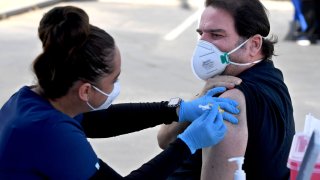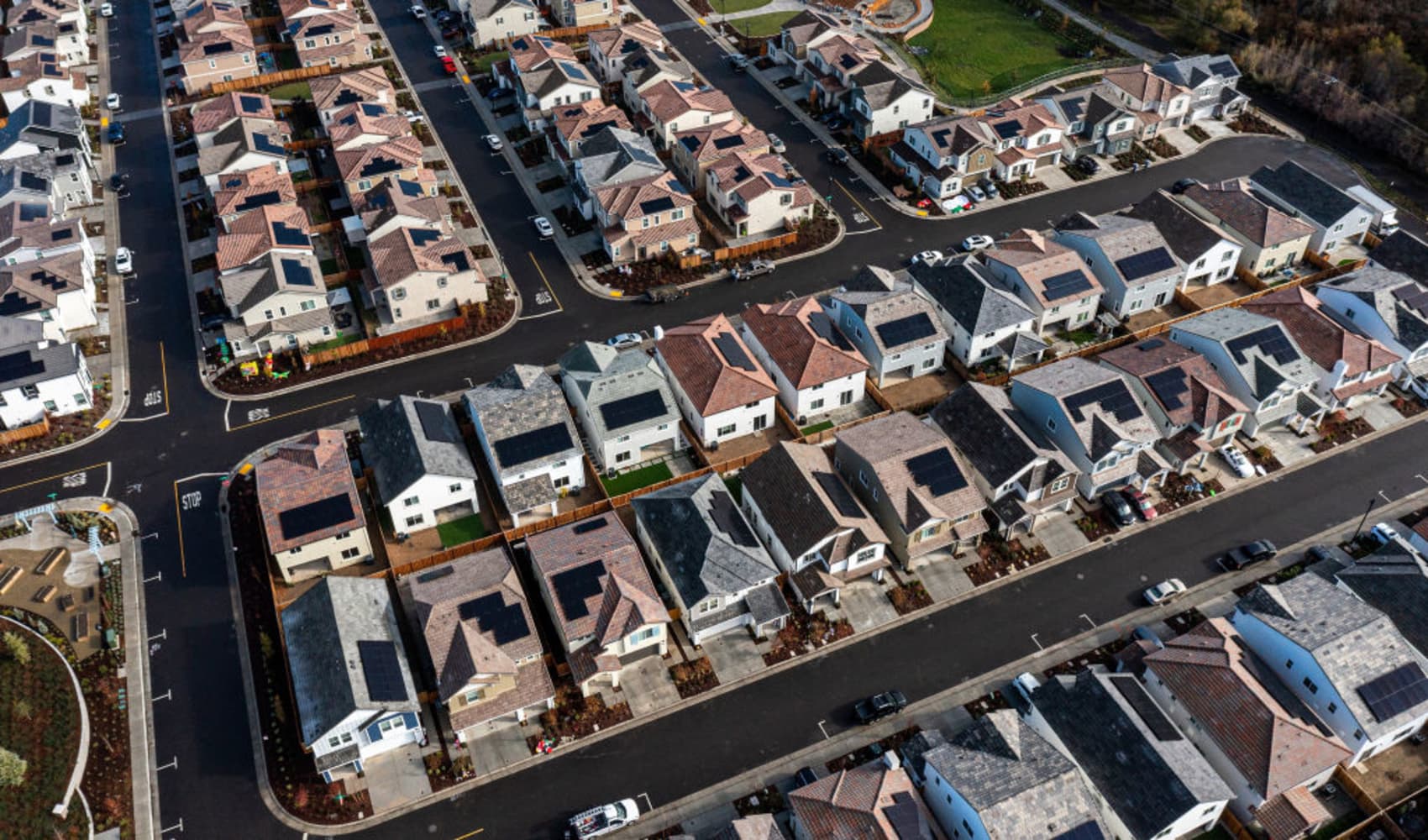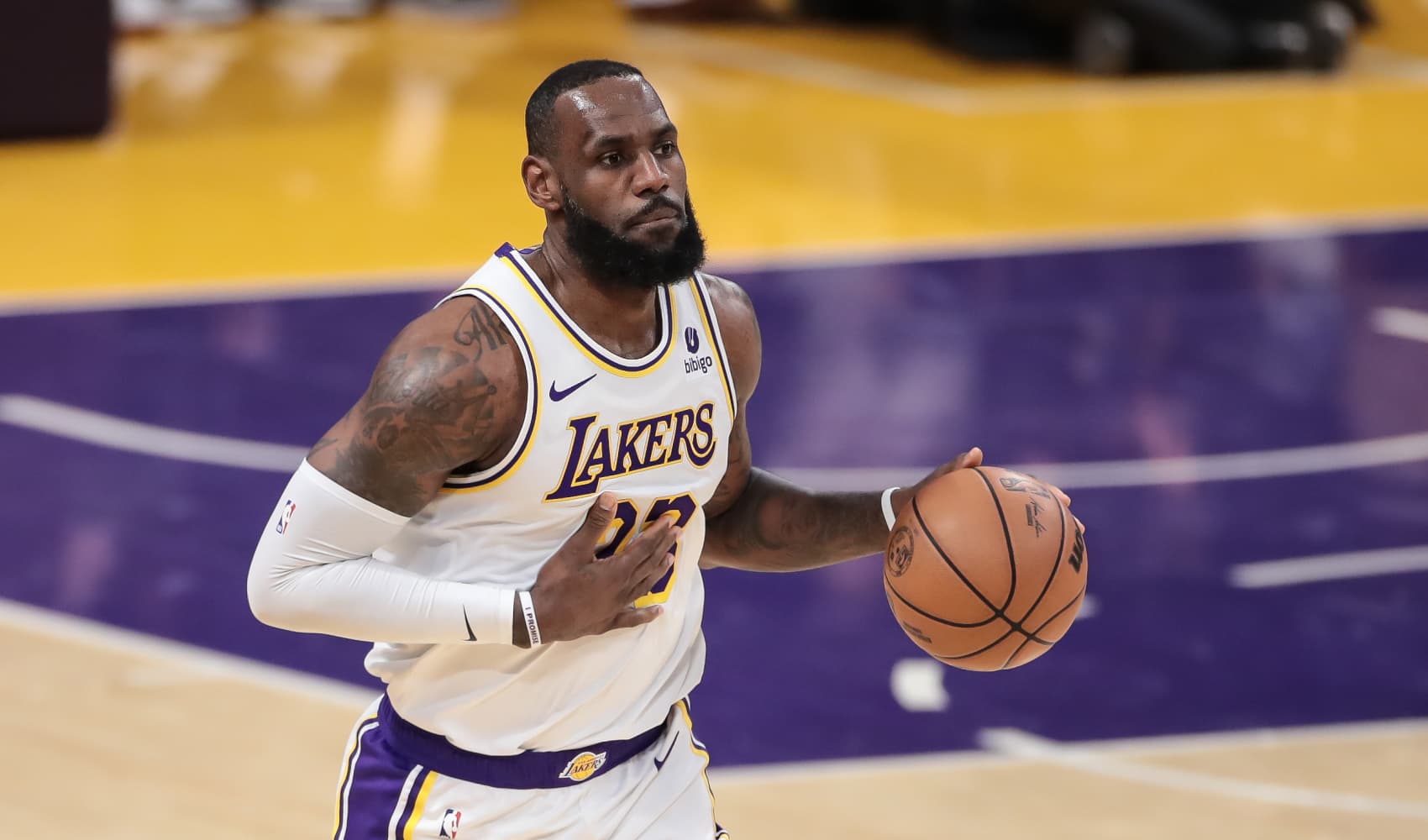
If you're not one of the 7.6 million Americans who have already gotten the updated omicron-specific Covid booster, you might still be debating one key question: When should I get it?
Experts say most people should get the new booster as soon as possible — particularly ahead of the late fall and winter months, when cases are expected to surge. Last year, cases began to rise in November as cold, dry weather made it easier for the virus to spread. They soared through the end of the year, reaching a peak around mid-January.
Vaccine protection slowly ramps up over two or three weeks post-injection: If you get your shot on October 1, you can probably expect its defenses to be fully kicked in by mid- or late-month. That protection typically lasts about three or four months before beginning to wane.
That's useful knowledge — but even so, there's no perfect singular date for booking your booster appointment. It depends on when you last got a Covid vaccine, how recently you were infected with Covid and whether you're at high risk of severe illness from the virus.
Get New England news, weather forecasts and entertainment stories to your inbox. Sign up for NECN newsletters.
Here's what you need to know:
If you haven't gotten a Covid infection or vaccine in recent months
If you're a healthy, everyday American who hasn't recently had Covid or received an older version of the vaccine, White House Covid response coordinator Dr. Ashish Jha says you should set a deadline of Halloween for your new booster.
Money Report
"Why Halloween? Because three weeks after Halloween is Thanksgiving, and there's a lot of travel, and you're seeing family, and you're seeing friends — and a few weeks later, it's the holidays," Jha told the "In the Bubble with Andy Slavitt" podcast earlier this month.
Pfizer's reformulated shot is authorized for people ages 12 and up. Moderna's new shot is for people ages 18 and up.
If you feel any side effects from the new booster, they'll probably be familiar ones — similar to your previous Covid vaccine experiences. Consider freeing up the day after your booster appointment to stay at home and rest up, in case any side effects end up hitting you hard.
You could aim to schedule your appointment for a Friday or Saturday, setting aside at least one weekend date for recovery, if you're worried about missing any work.
It's safe to get your flu shot at the same time as your Covid booster. But If you can afford to wait, experts recommend getting just your booster first — and waiting to get your flu shot in late October or early November.
If you've had Covid within the last three months
CDC advisors say you should consider waiting three months after testing negative before getting your new booster.
Studies have shown that waiting a few months after an infection to get vaccinated can result in a stronger immune response from a shot, the CDC website says. People who were recently infected also have a lower risk of infection, the agency adds.
If you've gotten a Covid vaccine within the past two months
To be eligible for the new shots, the CDC says you'll need to have completed your primary vaccination series and be at least two months out from your last Covid vaccine dose. That includes older versions of the Covid booster shot: If you just got boosted in September, you'll need to wait until November for your new booster.
The two-month window ensures you're making the most of the protection you already have from your previous dose, and raises your chances of safeguarding yourself against severe illness and hospitalization deeper into the winter.
If you're elderly, immunocompromised or otherwise at high risk of severe Covid
If you're at high risk of severe illness, Jha recommends getting your new booster right away — much earlier than the Halloween deadline. This includes people who are elderly or immunocompromised, and those with underlying medical conditions.
Sign up now: Get smarter about your money and career with our weekly newsletter
Don't miss:
- Pfizer or Moderna: Which new omicron-specific Covid booster should you get?
- 'Should I get my omicron booster and flu shot at the same time?' and other questions about fall vaccines, answered
- Get your omicron-specific Covid booster by Halloween, says Dr. Jha: 'You don't want to be that person who gives it to your grandma'






